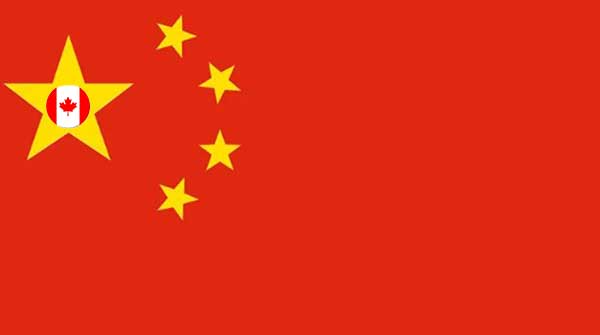Prime Minister’s struggle to skirt criticism of his ineffective leadership led to the delay in investigating foreign interference in Canada
 Will he … or won’t he?
Will he … or won’t he?
David Johnston, the special rapporteur investigating allegations of foreign interference in Canadian elections, will reportedly announce on Tuesday whether or not a public inquiry is needed.
For the purposes of this column, I’m going to put aside the litany of genuine concerns that have been expressed about Johnston’s role, mandate and independence. I’m also going to set aside the litany of genuine concerns about the former Governor General of Canada’s decades-long ties to the Trudeau family and long-standing interest in China.
Why?
 |
| Related Stories |
| A new world order is well underway, and China is ascendent
|
| Canada’s Indo-Pacific Strategy: What’s the end-game with China?
|
| Western allies have no faith in Trudeau’s trustworthiness
|
Johnston’s advice on conducting a public inquiry is the only thing that now truly matters. His decision could potentially have major ramifications for Canada, both domestically and internationally. Not just in the short term but in the long term.
What if Johnston decides that a public inquiry isn’t needed?
This would be a massive head-scratcher. Decades of foreign interference from totalitarian regimes like the old Soviet Union, Russia, China and Iran have been repeatedly detailed by the Canadian Security Intelligence Service, university academics and others.
This includes everything from long-standing spy networks (including the 1945-46 Gouzenko Affair) to modern cyberattacks and disinformation campaigns on the Internet. Michel Juneau-Katsuya, CSIS’s former chief of the Asia-Pacific unit, made this profound assessment in late March to the Standing Committee on Access to Information, Privacy and Ethics, “CSIS has known about [China’s] foreign interference in Canada for at least the last 30 years. Every federal government from Mr. Mulroney to Mr. Trudeau today have been compromised by agents of communist China. Every government [was] informed at one point or another. Every government chose to ignore CSIS’s warning.”
With respect to recent allegations of Chinese election interference, there’s an enormous paper trail to follow. Media organizations like Global News, CBC News, Globe and Mail and others have identified Independent MP (and former Liberal) Han Dong, Independent Ontario MPP (and former PC) Vincent Ke and former consul-general Tong Xiaoling in last year’s Vancouver municipal election as possible pieces of the puzzle. They’ve quoted CSIS reports, analyses, briefings and memos detailing what Chinese Communist Party officials have tried to do, and succeeded in doing, in the Great White North.
There’s also a Wikipedia page devoted to allegations of Chinese government interference in the 2019 and 2021 federal elections. Scroll down to the references and read on.
It would almost be unfathomable for Johnston to determine a public inquiry on foreign interference wasn’t needed. While some of the current allegations would undoubtedly be disproven, the ones that are valid must be highlighted and immediately dealt with. Our Western allies have also clearly lost faith in Canada’s ability to properly deal with safety and security matters. This undoubtedly led to our country being excluded from the AUKUS agreement in 2021.
The ball has been dropped too many times in the past. Canada can’t do it again with respect to China’s alleged interference in our election process.
What if Johnston decides that a public inquiry is needed?
This would be good news on the surface. It would show he understands just how serious the allegations of Beijing’s election interference are – and why they must be properly examined in a large-scale, independent public inquiry.
At the same time, why did we need a special rapporteur to point this out?
“Public inquiries are episodic,” the Hon. Associate Chief Justice Dennis R. O’Connor, Court of Appeal for Ontario, correctly said at the Canadian Institute for the Administration of Justice’s 2007 conference. “The issue, or the dispute, is bigger than who did what to whom, although that question may have to be addressed. The crisis that leads to an inquiry often demands a response that is public, specific about the past, comprehensive about the future, and also cost-efficient and speedy.”
Hence, Canada could have moved ahead with a public inquiry on foreign interference right off the bat in a fast, efficient and cost-effective manner. At the very least, a public inquiry could have been announced in conjunction with Johnston’s appointment as special rapporteur on Mar. 15. There was no reason why both couldn’t have materialized simultaneously.
Instead, Ottawa chose to take baby steps instead of gigantic leaps to stop foreign interference with our democratic institutions that helps reduce our liberties and freedoms. Our country has lost two months of this valuable investigative process because an ineffective and mediocre Prime Minister, Justin Trudeau, is unable to handle issues that are controversial, contentious and critical of his leadership.
Johnston’s decision is imminent. Here’s hoping he’ll make the right decision and won’t open the doors to further foreign interference repercussions that Canada may never fully recover from.
Michael Taube, a Troy Media syndicated columnist and political commentator, was a speechwriter for former Prime Minister Stephen Harper. He holds a master’s degree in comparative politics from the London School of Economics.
For interview requests, click here.
The opinions expressed by our columnists and contributors are theirs alone and do not inherently or expressly reflect the views of our publication.
© Troy Media
Troy Media is an editorial content provider to media outlets and its own hosted community news outlets across Canada.
